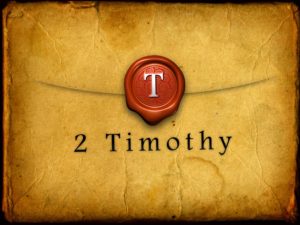
This is a link to Bible studies and messages that do not have the approval of the Canadian government. We are nonconformists.

Keeping the Porch Light on in a Dark World

This is a link to Bible studies and messages that do not have the approval of the Canadian government. We are nonconformists.

A little exercise for men who preach.
It is common for preachers to have much more in their minds when approaching sermon preparation and delivery than they can say. We are often guilty of preaching “the right message from the wrong text.”
I suggest this little exercise for preachers who are preparing a message. (This won’t work for a topical sermon, which is another issue and subject to other criteria). This exercise is for men who are preaching expository sermons.
Imagine your sermon is recorded on audio only. It was edited poorly so that the reading of your sermon text is cut off. The listener has no idea what your text is.
Now consider your sermon: when listening through the average serious message, 35 minutes or so, could the hearer, from your sermon, figure out the passage your sermon is based upon? Does your message arise from the text in such a way that the hearer (at least the Biblically informed hearer) can find the passage, or a parallel passage to your text? Could those who are not familiar with the Bible at least know you are basing it on something, basing your message on something that is missing?
If you must honestly answer “no” to this question, please read on:
The reason this is important is that much of preaching today is assumed to be Biblical because a passage is read before, and then the message commences; and never the twain shall meet! The ideas, concepts, lessons, stories from the sermon itself may be excellent, even Biblical, but are they Biblical from that text?
Expository preaching has been called lazy by some mega-church pastors. Maybe I’m doing it wrong, or I don’t have the gift of gab and can “shoot from the hip” with my stories and illustrations, but I find expository preaching to be the most rewarding and challenging preparation I do.
Whether or not it is the sole cause of Biblical illiteracy in the church, I do find that fewer men are preaching expository sermons. The present day’s urgency pushes us toward passages that somehow seem to answer immediate needs. But are the immediate needs we perceive to be most important the same as those God says is important? Preaching through the Word can be a guard against preaching to immediate crises only, while still addressing those crises. Expository preaching can uncover what lies beneath and prevent us from making the Bible come off as a book of advice-giving fables.
It is an easy thing to look up topics in a topical Bible or a concordance, but it is very hard to gather verses together that don’t violate their own contexts. Thus proof-texting that doesn’t supply valid proof can become the norm.
So listen to your sermon. Does it flow logically from the text? Does the text supply the outline? What is the context—immediate (previous and following chapters or paragraphs) and the context of the book in Biblical history (OT or NT is the most obvious, but there are other contexts); what is the genre of the passage? What is it’s historical context? How is the passage used in the rest of Scripture? What are other passages that parallel the one you are expositing?
A Bible passage is not a diving board from which one takes a great bounce and leap into the unknown pool of our own ideas.
 Passage outline
Passage outline
The main points are all imperatives in the Greek. Studying in the original languages often shows the author’s structure or frame of ideas. Imperatives are indicated in red.
2 Timothy 2:14-19
Emphasis: “This is what you must do in your ministry.” I.e., “This is what the Gospel ministry looks like.”
Strategies: I notice that the passage is ordered around four imperatives: 2nd person (3x); 3rd person (1x).
Context
a) the literary context (the passages on either side): The literary context is connected by “these things” in vs. 14 which refers to 2:8-13 (something of a creed). This context supplies what Timothy is to bring to remembrance, in addition to the things following vs. 14.
Vss. 20ff. illustrate the differences between the gangrene of vss. 17ff., and show the results of obeying vs. 19
b) the historical context (circumstances and culture of the audience): This context is the rise of false teachers in the church, even though it was only a few decades old. If vss. 11-13 form an early creed, this signals the likelihood of such statements, and their importance in countering false teachers (compare vs. 11b to vss. 16-18)
c) the Biblical context (connections to other places in the Bible): As Paul’s final extant letter, we see his stress upon true doctrine as against false.
Vs. 19 is not a direct quote, but an allusion to Num. 16:5; Nah. 1:7; John 10:14, 27; [Luke 13:27]; See 1 Cor. 8:3. God knows the elect. This is reassuring: an upset faith contrasted to the Lord’s knowledge of His elect.
Main Idea or Emphasis:
Keep to the main idea, the Gospel.
The Gospel in this passage:
The Resurrection is central to the Gospel (1 Cor. 15:1-4; 15:12). The correct view of the resurrection, both of Christ and the future resurrection of the dead is essential to the Gospel.
In contrast to false-gospels, the foundation of the Gospel stands.
Application
To both believers and unbelievers: there is a canon of truth that is contained in Scripture that excludes other doctrines and teachings.
Believers need to be reminded to reject idle speculation and to learn to know the difference between Biblical doctrine and hobbies. Vs. 19 makes it clear that this kind of activity is iniquity.
Unbelievers need to be told that not everything they hear or see being taught by alleged Christians is actually true.
Preaching outline